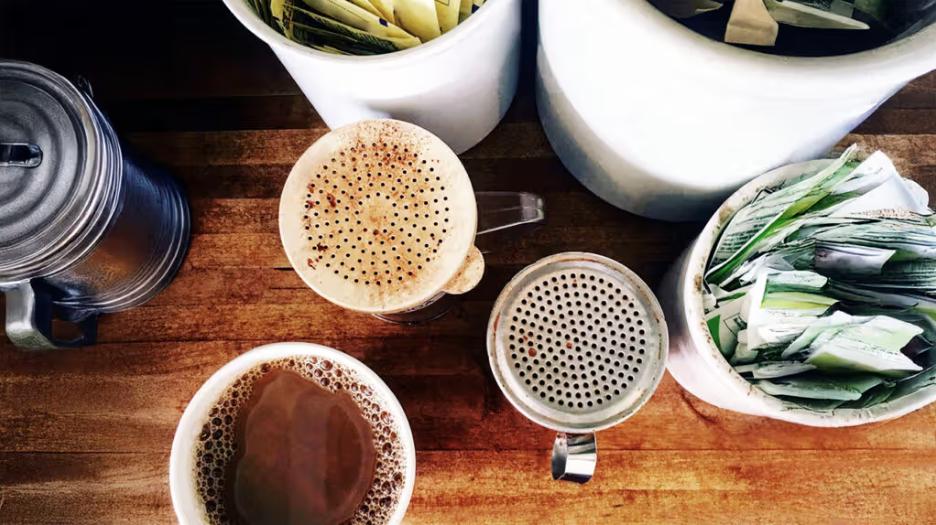
- Non-sugar, or artificial, sweeteners are widely used to reduce the energy in sweetened foods and drinks, particularly those marketed as diet, or low or no sugar.
- However, concerns about their possible health effects include links to gastrointestinal problems, metabolic effects, and even increased cancer risk.
- Now, a study has found that one of the most widely used artificial sweeteners, sucralose, could adversely affect cancer immunotherapy.
- The researchers suggest that by changing the gut microbiome, sucralose decreases the effectiveness of immunotherapy for several cancers.
Health concerns regarding sucralose have mainly centered around its potential to cause systemic inflammation, metabolic diseases, disruptions in gut microbiota, liver damage, and toxic effects at the cellular level.
Now, a study suggests that people whose diet includes large amounts of sucralose, e.g., from diet drinks, respond less well to cancer immunotherapy than those who consume less or none of the sweetener.
The research, which is published in Cancer Discovery, a journal of the American Association of Cancer Research, found that sucralose changed the gut microbiota so bacteria degraded an amino acid, arginine, that immune cells need to be able to destroy cancer cells.
Why are experts worried about sucralose?
Sucralose is one of six non-sugar sweeteners approved by the Food and Drug Administration (FDA)Trusted Source for use as additives in the food and drinks industry — the others are aspartame, advantame, neotame, saccharin, and acesulfame potassium (Ace-K).It is made by replacing 3 hydroxyl (oxygen and hydrogen) groups in sucrose (table sugar) molecules with chloride atoms.
The resulting sucralose is up to 650 times sweeter than sucrose and, because people cannot digest it, contains no accessible energy.
Therefore, it is widely used to sweeten foods and drinks, as well as being sold as an alternative to sugar for those trying to decrease their energy intake.
However, there are concerns, both about its health effects and its efficacy for helping weight loss. In 2023, the World Health Organization (WHO)Trusted Source advised that non-sugar sweeteners should not be used for weight control, saying that:
Diwakar Davar, MD, associate professor of medicine at the University of Pittsburgh and a medical oncologist and hematologist at UPMC Hillman Cancer Center, senior author of the study, told Medical News Today:
According to Jack Jacoub, MD, a board certified medical oncologist and medical director of MemorialCare Cancer Institute at Orange Coast and Saddleback Medical Centers in Orange County, CA, who was not involved in this research, the findings were significant.
“Frankly, this is a superb piece of scientific work,” Jacoub told MNT. “The authors were able to study preclinical models (mice) and draw conclusions related to the effect of high sucralose intake on T-cell function tumor response to immunotherapy.”
“They then took this understanding and later tested it in prospective enrolled patients with lung cancer and melanoma. They showed that patients consuming sucralose greater than 0.16 mg/kg/d [milligram per kilogram per day] had inferior response to immunotherapy,” he explained.
“Recognizing the significance of arginine on T cell functions they then went back to the mouse model and proved giving it restored T cell function and benefit to immunotherapy in mice. In my opinion, this is high quality evidence suggesting this absolutely needs more exploration,” added Jacoub.
In their study, the researchers included 132 patients who had undergone immunotherapy or chemoimmunotherapy for advanced/metastatic melanoma or advanced non-small cell lung cancer (NSCLC)Trusted Source. They also included 25 patients who had high-risk resectable melanoma.
All participants had completed a Diet History Questionnaire III (DHQ III), had received at least 3 months of treatment, had at least one post-treatment imaging study evaluable for response and had been followed up for at least 6 months from the start of therapy.
From the diet questionnaire, researchers calculated each patient’s non-nutritive sugar (NNS) intake (mg/day) and divided it by their weight in kg to get a weight-normalized average daily intake of mg/kg/day.
People with melanoma or non-small cell lung cancer who consumed high levels of sucralose (more than 0.16mg/kg/day) had a worse response to immunotherapy, and poorer survival rates, than those with diets low in the artificial sweetener.
Asked whether people undergoing cancer immunotherapy should try to avoid sucralose in their diets, lead author Abby Overacre, PhD, assistant professor in the Department of Immunology at the University of Pittsburgh and UPMC Hillman Cancer Center, told MNT: